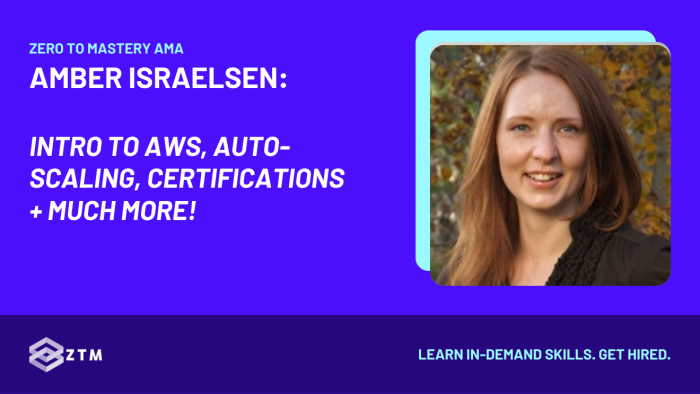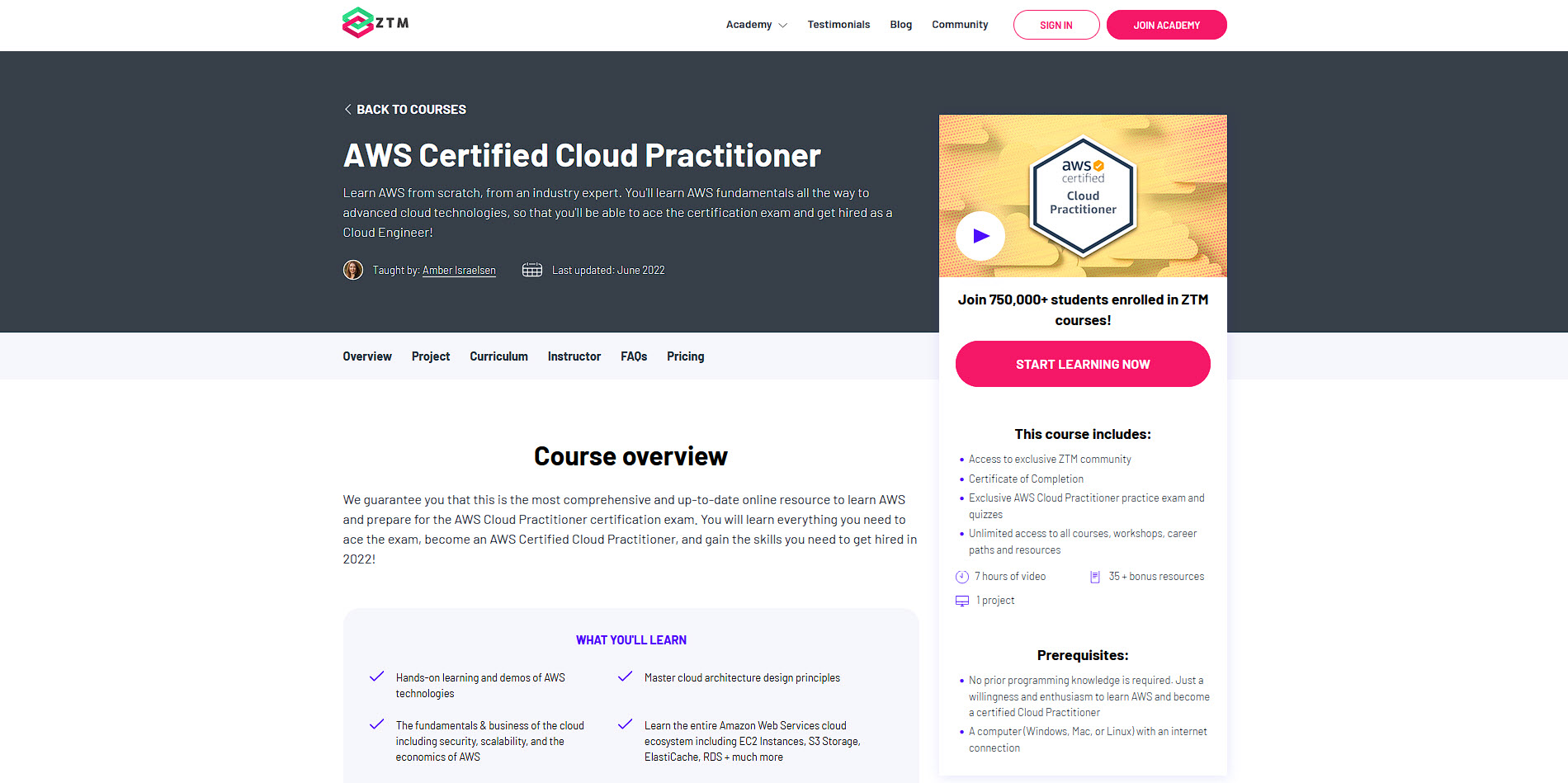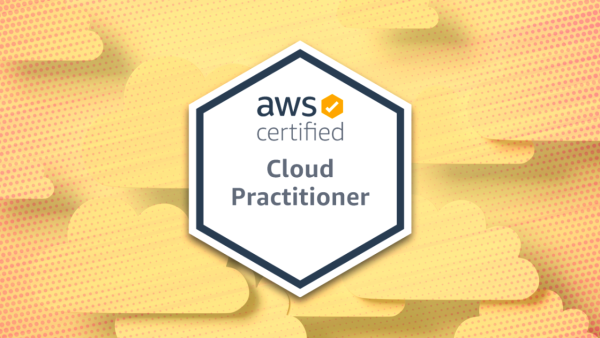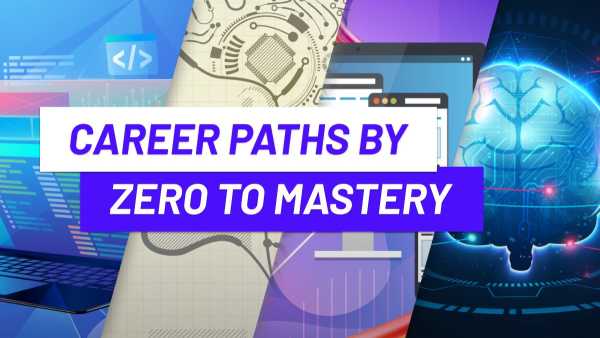A quick note from the editor:
I recently got to join and moderate a live AMA call that Amber Israelsen did with our students in the Zero To Mastery virtual campus.

Students and I asked questions about AWS, how it works, how best to learn it, how it compares to Azure and other cloud hosting providers, some technical questions, and much more.
You can check out some of Amber’s answers to the questions from her AMA call below, but first, let me introduce her.
Who is Amber Israelsen, and why should you listen to her?
Amber has been a Software Developer and Technical Trainer since the early 2000s and holds multiple certifications for AWS, Microsoft, and other cloud technologies.
As the Director of Technical Program Management at GoDaddy, Amber also works to bridge the gap between developers, designers, and businesspeople with her expertise in visual communication, user experience, and business/professional skills.
In recent years, she has taught students around the world about in-demand technologies including AWS, Azure, Dynamics 365, SharePoint, and ASP.NET.
Amber is also the instructor of our AWS cloud practitioner certification here at ZTM.
As you can see, she knows what she’s talking about when it comes to cloud hosting and more, and so we figured we would pick her brains on everything AWS.
She gave fantastic answers and resources, and also did a deep dive into getting hired which we’re going to share in its own blog post in the future because it was that valuable!
This was a great interview so with the intro out of the way, let’s dive into Amber’s AMA answers 😀.
🙋 AMA with Amber Israelsen on AWS
Want to watch the video, ask questions in our Discord, or join in live on our next expert AMA?

These are all exclusive access for members of Zero To Mastery. You can find out more details about every course and the other benefits of being a ZTM member here.
As a ZTM member, you can watch a recording of Amber’s interview inside the academy without having to wait for the article and hear those interview tips now, as well as other AMA calls!
What is AWS and AWS Cloud? Are they the same thing?
They are the same thing!
AWS or Amazon Web Services are a collection of services that let you do things like computing, databases, and networking. Basically, all the things that you used to do on-premises but moved out and onto the cloud.
Sometimes you’ll hear this referred to as Amazon cloud or AWS cloud, or just ‘the cloud’, but this all means the same thing.
AWS is a division of Amazon.com.
What is an AWS certification, and what is it needed for?
So the common question we see is do you need an AWS certification to get an AWS job?
If we look at it from a mile-high view, all certifications, AWS or otherwise, are simply a way to validate and show the skills that you have. It helps to show that you have a certain level of competency or knowledge on the topic.
Are AWS certification’s a requirement to get an AWS job?
Some job postings will prefer or require that you have an AWS certification but not all of them. It really all depends on the company, the industry they are in, and the level of job that you’re applying for.
So, a certification is not always a requirement to get a job but I will say this... Hiring managers will often look at applications that have them in a little more detail vs applications that are missing the certification.
Not only that, but learning and passing the certified practitioner exam is going to give you more knowledge and a broader understanding of the topic that you want to work on.
Another benefit of certifications?
They can often help you with self-confidence around your skills and knowledge.
Not sure if you’re ready to apply for a programming job? Taking courses and certifications can both upskill you and help you know that you’re ready.
What is the best way to get an AWS certification?
We’re slightly biased in that we offer an AWS certification program here at Zero To Mastery!
The course takes you step-by-step through everything you need to ace the exam, including a practice exam to test yourself on. It also gives additional resources to help you learn even more, so you can follow along and get practical experience, which is vital for some job applications.
Practical experience is so important.
For example
The Sysop exam will often have you set up an example server or network to show that you practically know how to do this. This is why it's vital that you follow along with the course examples and get practical experience at the same time!
Is AWS easy or difficult to learn?
It depends on your background and the method that you’re using to learn.
If you’ve been working a lot on-premise, and your day-to-day job is to set up servers and run cables around a data center, and write code, then you’re going to have an easier time learning how to apply those same skills now on the cloud than someone with zero experience.
Honestly though, it’s not that difficult even starting from scratch, as long as you follow a set path to learn from.
AWS is very intuitive with easy workflow from the console and how they name features etc.
I’ve used others and AWS is far easier to grasp.
Do you need any programming experience to learn AWS such as Python or others?
It really depends on the role that you’re going to be using AWS for. If you’re using AWS in a Developer role then yes, you’ll need to know how to code when using AWS, but you need to know that anyway for your day-to-day job.
It never hurts to learn a little Python or JavaScript, and some JSON or YAML experience will also help.
Do you need to know multiple programming languages to use AWS?
You shouldn’t have to as almost every language is supported inside AWS so you should be able to just use the same language that you already use.
AWS currently supports:
- C++
- Go
- Java
- JavaScript
- .NET
- Node.js
- PHP
- Python
- Ruby
- And is currently setting up to work with Rust
Can you get a good career from working with AWS?
AWS has been around since 2006 but it seems like there's been a lot more adoption and talk of it in the last few years as companies start to understand all the benefits of moving off-premise.

It’s also allowed us to work on so many things now that we couldn’t before such as Machine Learning and A.I., Data Science, and more thanks to the increase in storage capacity and computing power.
In terms of job opportunities, this means there is a LOT more demand for Developers with cloud experience.
In fact, there were 173,228 AWS Cloud Engineer Jobs at the time of writing, just on one job posting website!
Personally, I think cloud-focused positions are just in their infancy, and over the next 5-10 years we will continue to see huge growth.
What is the salary range for working with AWS?
It starts at around $72,000 a year and scales up to $176,500, for an average salary of $129,182 USD per year as an AWS Engineer.

It can vary depending on the role, company, and country but compared to other jobs you can do, the money’s pretty good!
What is 'auto-scaling' in AWS?
Auto-scaling simply means that you can scale up or scale down resources automatically.
For example
Let’s say that you have a workload for B2B and Monday to Friday you have a lot of traffic, but on the weekends, the traffic drops to almost nothing.
You probably wouldn’t want to pay for high-traffic resources on weekend days right?
Likewise, let’s say that you’re Netflix and you just dropped the new season of Stranger Things. You can probably expect your traffic to double or triple during that week.

Auto-scaling allows you to automatically adjust the server resources that you use and pay for, based on your needs. This saves you money instead of having a flat fee, and also saves you from potential upfront costs when you have large spikes like this.
What do I mean?
Well traditionally, you would need to set up servers on-premise to handle this load. This means you might have to upgrade for those one-off days each year, have a larger upfront cost and pay for hardware you don’t always use.
What are AWS tools?
There are far too many to list here, but basically, AWS tools are a suite of tools designed to help developers build, test, and deploy their programs to either AWS or even on-premises.

Does AWS offer a visualization tool to get an overview of the architecture?
Yes, it does! It was previously called AWS Workload but is now known as AWS Well-Architected Tool.
Basically, it will take what you’ve built and creates visuals for you, and it’s free to start using!
What is the point of using an AWS workload tool?
This tool helps you to visualize what you have in your project and how things relate to each other.
This is always helpful but especially so if you’re taking over a project or coming onto one, this will help you to understand how everything is being implemented.
When you have thousands of servers and databases, a tool like this is a lifesaver!
How do I get an AWS job without experience?
The key for any tech job with no experience is to sell yourself on how you can help them. This might not be just in the interview but also in advance.
Interviews aren't about you. They are about how you can deliver value for the company hiring you.
Here are some ideas of how you can stand out:
- Build yourself into an authority via blogging, Youtube, or other channels
- Take courses and certifications to show your skill levels
- Create a portfolio of your own projects
- Work on open source projects for the topic you want to work in
We cover a lot more on how to get a tech job in this article here.
How long does it take to get AWS certified?
It all depends on the path you follow to learn.
Learning for free from articles and youtube videos is completely possible but will likely take longer than a well laid out course.
For example, my AWS certification course has ~7 hours of video lectures to complete (+ exercises + practice exam). It is super focused on teaching you only what you need to know and not wasnting your time on things that you're unlikely to use in the real world and or that you don't need to know to pass the exam.
Don't hold me to it but someone could learn everything they need to know and practice enough to pass the exam in less than a week if they're focused full-time and have some technical background.
For someone else, it might take a few months. Everyone is different.
🔥 Want to learn more about AWS?
You can check out Amber’s course and learn how to become an AWS practitioner and get certified here.







